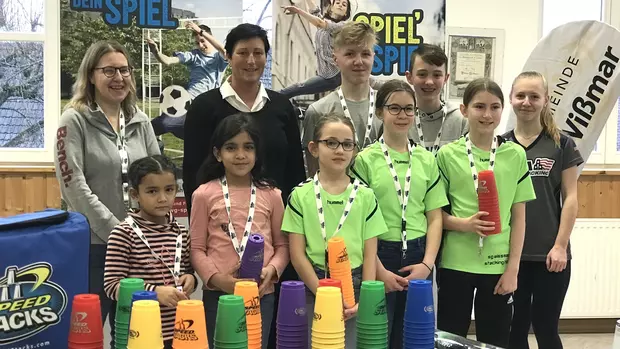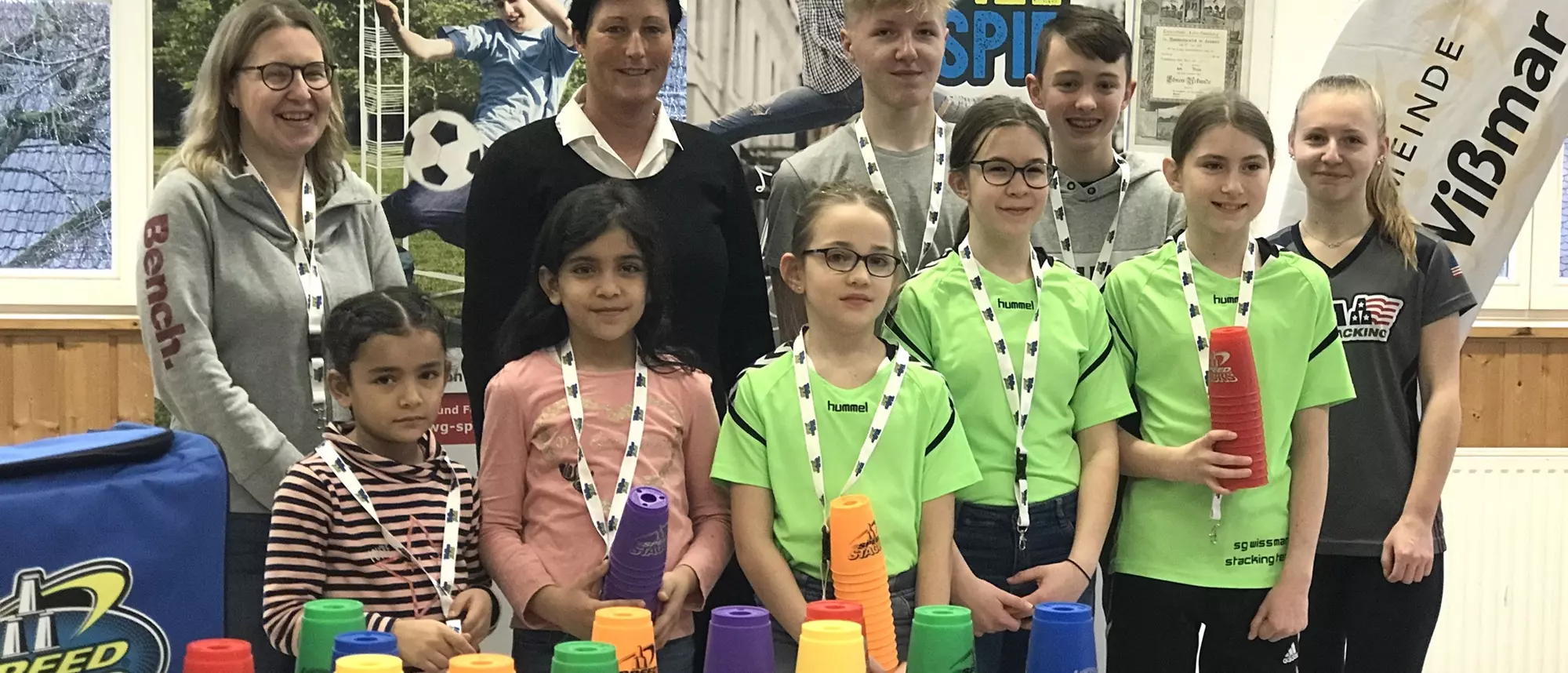
Sport stacking - the trend sport from the USA is also becoming increasingly popular in this country. SG Wißmar has set up a training group. Because children in particular improve many different coordination skills here, the club receives support from the SWG campaign "Spiel' Dein Spiel".
Stacking plastic cups into predetermined pyramids as quickly as possible and then dismantling them again - that's what sport stacking is all about. SG Wißmar recognised the potential of the US trend back in 2009 and established a sport stacking group in the gymnastics section. With success: SG Wißmar was able to celebrate its first German champion in 2010. Two years later, cup stackers from Wettenberg were victorious for Team Germany at the world championships for the first time. Since 2012, members of SG Wißmar have taken part in world championships every year. In total, the SG Wißmar stacking team has won 35 titles at world championships and 93 titles at German championships, as well as well over 200 2nd to 10th place finishes.
Currently, 15 children between the ages of four and twelve emulate their role models in the club and regularly come to the former school in Wißmar for training on Thursdays. The club needs special mats to make this as close to competition as possible. These not only provide the ideal non-slip surface for the cup pyramid, but also an integrated timekeeping system: if the hands are released from the contacts, the clock starts; if both hands are back on the designated surfaces, it stops. Stephan Laucht, a member of the SG Wißmar stacking team, approached the SWG "Spiel' Dein Spiel" campaign with an application and a request for similar documents. And was accepted shortly afterwards. "The new mats will help us a lot," says the 2016 and 2019 world champion in parent-child doubles.
Many positive effects
"The SG Wißmar sports stacking group is another great example of 'Spiel' Dein Spiel'," says Stephanie Orlik, who is responsible for the campaign at Stadtwerke Gießen (SWG). And for several reasons. Firstly, the club does excellent youth work. On the other hand, the sport itself is convincing. Because to be really fast at stacking, the right and left hands have to work together perfectly. Training this skill activates both sides of the brain, which has various positive effects. For example, new connections are formed in the brain, which are helpful when learning other skills. In fact, scientists were able to prove in a study that just six weeks of stacking training has a positive effect on pupils' reading performance.
The roots of sport stacking lie in a simple game that was invented in California in the 1980s and launched on the market under the name "Kup Stax". Primary school teacher Bob Fox developed the now common competition disciplines 3-3-3, 3-6-3 and Cycle. In 3-3-3, the aim is to build and dismantle three small pyramids, each consisting of three cups. Two pyramids of three and one pyramid of six in the centre have to be stacked in 3-6-3. And Cycle, the supreme discipline, starts with 3-6-3, followed by two pyramids of six and a 1-10-1 stack. This is then dismantled again so that the 3-6-3 formation remains in place and the cycle is completed. In addition to individual competitions, there are also relays and doubles. In doubles, two people stack a set of cups in a cycle, with one partner using only the right hand and the other only the left. For parent-child doubles, age groups up to and including ten and eleven years and above apply. In relays, teams of four to six athletes compete against each other in 3-6-3 or in the challenging cycle.

